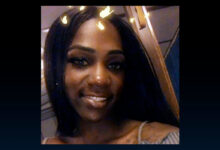Prop. 8 Attorney Looks to Case Resolution
by Sarah Blazucki
Philadelphia Gay News
In May, the judge in the Proposition 8 trial, Perry v. Schwarzenegger, announced closing arguments would begin on June 16.
In the case, two same-sex couples are suing to overturn the ballot initiative that amended the California state constitution to ban gay marriage after the legislature had granted it in 2008.
The couples’ lawyers, Theodore Olson and David Boies, received the International Role Model Award from Equality Forum at the International Equality Dinner in Philadelphia.
While Boies was in town, Philadelphia Gay News asked him about his expectations on the case.
Sarah Blazucki: Do you have your closing arguments planned?
David Boies: We do. In fact, we had them almost planned for January because we didn’t know the judge was going to have the briefs filed before the closing arguments. So I think we’re well-prepared. We filed our last briefs at the end of February, and I think we’re now ready to conclude this.
On April 13, backers of the 2010 ballot initiative to repeal the ban on same-sex marriage failed to get enough signatures. Do you think that effort was a good use of resources?
I don’t think that they really devoted the effort that would have been required, and I think that was partly [based on] a decision that 2012 is the right time to do it. It wasn’t that they just stopped. I don’t think they had the mobilization of resources you would’ve had if there was a real commitment to put it on the ballot. But this is going to be on the ballot in 2012.
Judge Vaughn Walker recently ruled that communication between organizations didn’t need to be disclosed. Can you tell me a little bit about that and what your thoughts are on that?
What had happened was that after the trial, the defendants had undertaken a whole variety of arguments, I think frankly as much to delay things as anything else, in terms of trying to get broader and broader discovery. They were given really broad discovery, but at some point the judge quite properly called a halt to it.
The opposition is trying to attempt to strike testimony from the record. Can you tell me your thoughts on that?
The testimony did not go well for them. Even their own experts sort of crashed and burned, at best, for them. In fact, their experts actually ended up supporting us, so it’s not any surprise to me that they would probably like to strike the entire record, including their own witnesses. But the witnesses who came to testify were extraordinarily well-qualified people for our side. They were the leading experts in every relevant field from around the world. The defendants have no real basis for striking testimony. This is a desperate attempt to distract attention from how disastrously the trial went for them.
Judge Walker is gay. Do you think that will have any bearing on how he is going to rule?
No. It’s no different than a straight person ruling on this. If we had a straight judge, and most judges on the appellate court will be straight, I don’t think that fact would disqualify them or affect their judgment. I don’t think whether you’ve got a man or a woman on the bench determines how they’re going to rule in terms of gender discrimination. I think anybody who knows Judge Walker knows that he is an extraordinarily well-regarded judge, a very experienced judge and a very fair judge. And I may or may not agree with his ruling, depending on what it is, but I have no doubt that he will reach it fairly.
So do you have any sense of how he’ll rule?
No. I don’t think any lawyer is well-served by trying to predict how a judge who has the case ready for decision is going to rule. I will say that the judge, soon after we filed our case, laid out the factual issues that he thought were important for us to address, and we addressed every one of those factual issues in a conclusive way. The evidence that we supplied on each one of those factual issues, I think, is determinative. And if he continues to believe that those are the right factual issues–and we may have an argument about that–we ought to win.
There will be an appeal either way?
Either way, there’s going to be an appeal.
So if this case is successful, what are the next steps?
Assuming we’re successful, we’ll then be in the Ninth Circuit Court of Appeals. I think the court will hear this case promptly, and it may very well hear it en banc [the whole bench]. You could even hear it en banc before you had a three-judge panel. That’s very unusual, but it does happen sometimes with really important cases.
And if you’re unsuccessful?
If we’re unsuccessful, we’ll appeal very promptly. I think no matter who wins, you’re going to have a very prompt appeal. I think one of the things that Judge Walker is doing is he’s laying a record not only for his decision but for the appellate court’s decision. I think one of the reasons he’s been as open as he has to the defendants’ requests is that he wants to give them every opportunity to make a record because he knows it’s going up on appeal.
And how soon is he supposed to rule in the case?
You don’t know, but we’ll argue it on June 16, and any time after that.











Comments